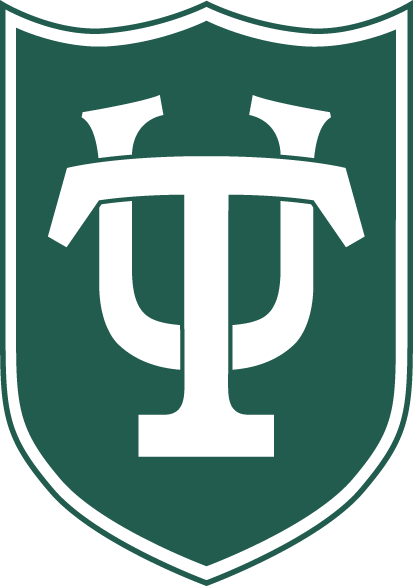
Tulane University asks for three essays, the first a very long “Why Us” essay, the second a shorter essay on an extracurricular, the third an optional essay on your personal identity. The first essay has a limit of 500 words, longer than any other supplemental, and the personal statement. They don’t, however, necessarily expect you to use all of the space, though they will allow it. You should write enough to say everything which needs to be said. The second essay is a much more reasonable 250 words.
The examples we have here are from older prompts but still do a good job demonstrating what Tulane is looking for from applicants.
Please describe why you are interested in attending Tulane University? (0-800 words)

Sitting in the small room accompanied only by the clickety-clack of the mechanical keyboard and the blinding light from the computer screen, I work for hours, wearing down an extensive backlog of payments. My work at Ibn Sina, a low-cost primary care clinic, gave me my first glimpse at the inner workings of a hospital. I began to familiarize myself with ICD-10 and CPT codes as well as the software used to categorize and log patients’ data.
Yet, the most impactful lesson was the intersection between medicine and economics. In IB Economics, I was introduced to topics like scarcity, opportunity cost, and elasticity. Working at Ibn Sina, I was exposed to these concepts in real-time. Restocking perpetually low supplies of adhesive tape, syringes, and IV sets, I saw how scarce resources coupled with a large patient base forced the clinic to choose between allocating resources to one sector over another.
Ibn Sina catered to patients from underprivileged backgrounds by lowering fees for those without health insurance, meeting specific market demand for healthcare. Unfortunately, the clinic was bereft with small-scale sacrifices necessitated by their limited budgets, such as limited time spent with patients and manual patient scheduling procedures. While it’s easy to dismiss these as the issues of one low-income clinic, the US healthcare system itself is rife with inefficiency.
My experiences at Ibn Sina introduced me to the fascinating world of health economics. While the patient’s ailments and medical procedures interested me, the way an individual’s choices shaped the function of the clinic interested me even more.
I aspire to study economics to better understand the ways people, markets and government policy affect the healthcare industry. Through Tulane’s department of economics, I will finally be able to peer through the looking glass of health economics to learn how to make better choices, so I can help others make them too.
Taking courses like Economics and Healthcare Reform (ECON 3500) will allow me to examine the economic theories and concepts underlying current approaches to health care, while simultaneously demystifying the impact of reform on the United States healthcare system overall. As I begin to understand the reasoning behind current healthcare reform strategies, advantages, and disadvantages, I will slowly build the tools to analyze health management and policy issues that plague small clinics like Ibn Sina.
Meanwhile, core economics courses will broaden my understanding of the problems society faces while exposing me to the techniques and points of view developed by various economists. I plan to make use of these opportunities to develop logical reasoning and critical thinking skills that will assist me as I work towards a career in medicine.
While majoring in Economics will deepen my understanding of the economic basis of healthcare, pursuing a pre-health track will prepare me for a future as a medical professional. Courses such as organic chemistry, physics, and biology will equip me with the foundational knowledge required to think critically and deduce efficiently in the medical field, invaluable skills for future doctors. On the other hand, courses in psychology and sociology will elucidate the strategies and techniques I will need to form interpersonal relationships as I deal with patients every day.
Additionally, I will take advantage of the many undergraduate research opportunities available. Dr. Zachary Pursell’s biochemistry research concerning the relevance of DNA polymerase epsilon with regards to cancer is especially interesting given my previous experience at an MD Anderson cancer research facility.
Clubs such as the Pre-Medical Society and Doctors at Reach stand out to me. My interest in medicine compels me to be around like minded individuals traversing the same field I am. As an active member of these organizations, I will expand my social circle with peers I can count on to make a difference together.
Tulane will be the perfect learning environment for me, rich with resources and opportunities that will deepen the medical and economic insights I first glimpsed at Ibn Sina.

This prompt isn’t just asking “Why is this school great?” rather it’s asking “Why is this school right for you?” Admissions officers want to see that the values you hold and the reasons you want to attend fit in with their idea of what the school should be. To answer this, and to fill out the word count, the student goes deeply into why they want to study the subjects they are interested in.
There is no minimum word count for this essay, and if you want to write a more standard “Why Us” essay without the “Why Major” components, that is allowed. Tulane gives you all of this space to write for a reason however, and you should not pass it up lightly. That doesn’t mean you need to use every word; the essay above is only 650 words long, but you should make sure you have said everything worth saying.
Admissions officers only know what you tell them, and this essay is a good chance to tell them quite a lot. In the example above, the author starts by going into the background of why they are interested in economics and healthcare alike. Thus, when they discuss the resources and opportunities offered by Tulane, they are able to clearly tie them in with their own desires and passions. In this way, they concretely link what Tulane offers with their own goals.
Further, the author is very specific about which parts of Tulane appeal to them. There is room in this essay to go deeply into specifics, so the author does so. When they discuss the research being done by Dr. Pursell, it has it’s own paragraph, and is clearly tied into experiences from the author’s past, to show why it interests them in coming to Tulane. In this way, the author is able to briefly touch on one of their own experiences, and delve further into specifics about Tulane.
When you are answering this question, determine what exactly you want from Tulane. We recommend the bulk of the essay focus on academics, unless there is some other burning passion driving you to the school. The essay above does mention clubs, but they are clearly a secondary focus. If clubs are more important to you, then you should devote more space to discussing why.
Finally, this essay should display some of your values, and who you are as a person and student. The essay above manages this by exploring the author’s motivations for their choice of major, and desire to help people. While you don’t have to display these same values, you should display some which let admissions officers know who you are, and how you will contribute to their campus.
Please briefly elaborate on one of your extracurricular activities or work experiences. (0-250 words)

The calming hum of the laboratory generator coupled with the scent of bulk-use solvent vapors wafts over me as I prepare the lab’s thermal cycler to run a Polymerase Chain Reaction. Within the sterile maze that is MD Anderson, I am hard at work, seeing things I have only ever read about in textbooks.
From learning the basics of confocal microscopy to enzyme active site crystallography, the topics that once seemed so distant became closer than ever. The lab opened my eyes, literally, as I saw things that could only be measured in microlitres. I saw my first human cancer cells, I learned to use my first pipette, and I created my first cell line. I adapted to an environment requiring knowledge levels above anything I had learned up to that point, and the satisfaction of continuously learning and challenging myself is second to none.
More importantly, though, I learned how to be a functional part of a professional team. As I worked alongside my medical mentors, I began to understand the genetic and biochemical bases for lung cancer metastasis with even greater depth. Our work helped develop novel therapeutic strategies based on the metastatic properties of lung cancer cells in a tumor ‘microenvironment’ – the immediate small-scale environment of an organism.
Over the summer, I continued to build my foundational medical research skills: understanding complex experimental processes and making sense of scientific jargon, to prepare for a future career in medicine.

This prompt is quite open ended, and provides you with an opportunity to dive more deeply into one of your extracurricular activities. While Tulane does get your activities list, there is only so much which can be learned from a 150 character blurb, thus this essay is a chance for them to learn more about how you choose to spend your time outside of the classroom.
There is more to it than that alone, of course. While you discuss an extracurricular, you can also display other values of yours that you want Tulane to know about. Thus, essays you have written about your leadership abilities or how you have contributed to a community demonstrated through an extracurricular, can be used to fulfill this prompt. We recommend doing this to kill two birds with one stone; you both explore an extracurricular which shows impressive involvement, and display a core personality trait.
In the example above, the author chooses to discuss in depth an impressive extracurricular, working in a lab conducting research. While they are merely an assistant, they are still part of the ongoing scientific process, able to observe and contribute. The author covers what they learned, both in terms of concrete research skills, and the values of working with a team towards a common goal.
This is a good topic to cover, as it allows the author to show off what they have accomplished, and what skills they have acquired, in a far more extended way than an activities list allows. We recommend covering your most impressive extracurricular you don’t go into in other essays. If you only participate in a single extracurricular, due to time constraints or other reasons, then explore a different facet, or display a different value exemplified by your participation in the activity.

Ivy Scholars is the leading educational consultant in Sugar Land, Texas, providing admissions coaching, test prep, and more to help students enroll at top tier schools.

Call us now: +1 (281) 215-5148
.
Get expert tips, admissions updates, and resources delivered straight to your inbox.


